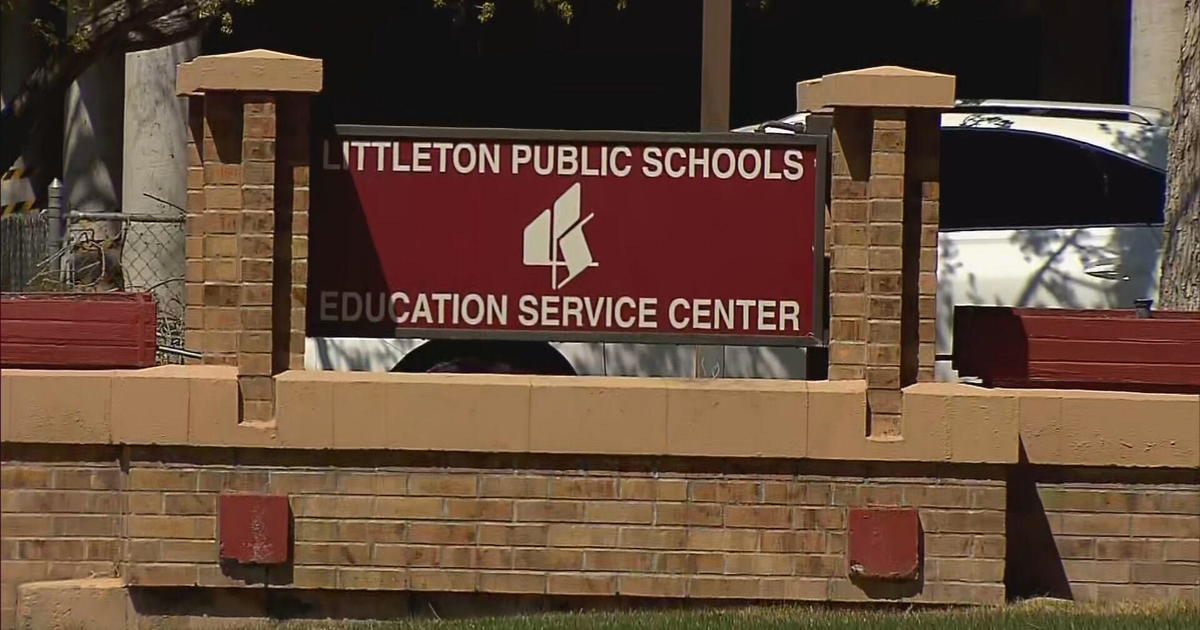Colorado's High Court Upholds School Funding
DENVER (CBS4/AP) - The Colorado Supreme Court ruled Tuesday that Colorado's school funding system is constitutional, siding with the state in a landmark lawsuit filed by parents and school districts challenging the way schools are funded.
The 4-2 ruling affirmed the state's argument that it has made funding a priority and that school finance should be left to lawmakers to decide, not the courts.
The 67 plaintiffs — including parents, students and 21 school districts — argued the state's funding formula is irrational and leaves poorer students disadvantaged.
Taylor Lobato is a student at the University of Denver. She was only in 8th grade when she became the poster child for a fight to increase funding in rural and low-income schools.
"It's heartbreaking," Lobato said she is disappointed by the decision and said it's the children of Colorado who this affects most.
"I knew I would never get to take a book home for homework because there weren't enough. I knew the facilities were falling apart but isn't that the way it was?"
Writing for the majority, Justice Nancy Rice concluded the constitution "does not demand absolute equality in the state's provision of education services, supplies, or expenditures."
Later in the ruling, the justices wrote that while some schools may need more funding, the state framework for funding education isn't to blame.
"While we sympathize with the plaintiffs and recognize that the public school financing system might not provide an optimal amount of money to the public schools, the statutory public school financing system itself is constitutional," the justices concluded.
One of the justices, Justice Monica Marquez, did not participate in the case because she earlier worked on the Lobato case while a member of the attorney general's staff.
A district judge ruled last year the educational funding system is inadequate and that no district is sufficiently funded.
Attorneys for the plaintiffs listed several examples of schools they said are sorely in need of funding, like a school building in Sanford, in Colorado's San Luis Valley, that until recently had a partially collapsed and leaking roof and inadequate lighting.
Other schools had globes where the Soviet Union still existed, and books where Bill Clinton was still president, the attorneys said.
DOMINIC DEZZUTTI'S BLOG: Lobato Loss Will Be Better For K-12 Funding
State officials, including Democratic Gov. John Hickenlooper and Colorado Attorney General John Suthers, argued school funding already makes up nearly half the general fund budget. They said the state can't afford more without cutting other services and departments.
Asked about the ruling Tuesday, Hickenlooper praised the decision but added that schools are indeed underfunded. Last week he signed into law a school-funding overhaul that counts on voters approving some $1 billion a year in new taxes.
"That we are in compliance with the requirements of the constitution doesn't necessarily say that we have sufficient financing in education right now," Hickenlooper said. "I think most people would agree we are underfunded in education."
Republican state Rep. Carole Murray of Castle Rock said lawmakers are already looking for ways to improve school quality.
"But we must balance this need with our other funding obligations," Murray said in a statement.
Although plaintiffs did not ask for a monetary amount in the lawsuit, they have estimated state schools are underfunded by $4 billion. That's about half the entire general fund budget.
Attorneys for the plaintiffs said they wanted the state's current system to be declared unconstitutional and for Colorado officials to implement a formula that ensures money is used where it is needed most.
Two justices wrote dissents, including Chief Justice Michael Bender.
"The record reveals an education system so crippled by underfunding and so marked by gross disparities among districts that access to educational opportunities is determined not by a student's interests or abilities but by where he or she happens to live," Bender wrote.
A few national advocates for education who monitored the Colorado lawsuit agreed with Bender. In a statement released after the decision, the head of the Washington-based Mexican American Legal Defense and Educational Fund called the decision "timorous."
Thomas A. Saenz said the Colorado decision is "abandoning the state to a dim future of inadequately educated citizenry."
State officials say Colorado has more than doubled spending on public education since 1994, and more than 40 percent of the budget now goes to education, a sharp contrast to 1939, when local property taxes made up about 95 percent of school funding.
Wyoming and Missouri are other states that have been sued over school funding. Colorado attorneys argued that simply increasing funding to education won't improve results.
The Colorado Attorney General's Office said the court's ruling confirms the Lobato case has been a distraction from the task at hand which is improving the education system, by taking the debate out of the hands of the general assembly and placing it into the courts.
"It essentially put on hold some of the decision that need to be made about how public education is funded in Colorado and everyone has been frozen in place for the case to travel up or down, twice now, in the court system," said Colorado Attorney General Chief Deputy Attorney Cynthia Coffman.
"It simply slammed the door in the faces of students in Colorado and it gave the legislature a pat on the back for not doing their jobs," said Lobato.
"They know there's a problem and that it needs to be addressed," said Anthony Lobato.
Anthony Lobato said they plan to continue their fight for school kids either by requesting a remand or re-hearing or possibly filing a new lawsuit.
The decision was inadvertently uploaded to a state server on Monday, the usual day for judicial ruling releases. State officials removed the posting after a Denver Fox affiliate reported the decision, said Jon Sarche, spokesman for the state court administrator's office. It was officially released Tuesday, a day late because of the Memorial Day holiday.
(TM and © Copyright 2013 CBS Radio Inc. and its relevant subsidiaries. CBS RADIO and EYE Logo TM and Copyright 2012 CBS Broadcasting Inc. Used under license. All Rights Reserved. This material may not be published, broadcast, rewritten, or redistributed. The Associated Press contributed to this report.)



